Anthony Mandal
Anthony Mandal is a Professor of Print and Digital Cultures, and D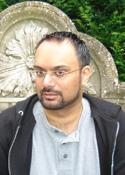 irector of the Centre for Editorial and Intertextual Research at Cardiff University. His research interests focus on 19th-century fiction, print culture and book history, digital humanities and the gothic.He is a Fellow of the Higher Education Academy (HEA), and member of a number of academic societies, and was elected as the Vice-President of the British Association for Romantic Studies in July 2015. He is the co-organiser of Cardiff BookTalk and Cardiff Romanticism and Eighteenth-Century Seminar, and sits on the Editorial Board of Cardiff University Press.
irector of the Centre for Editorial and Intertextual Research at Cardiff University. His research interests focus on 19th-century fiction, print culture and book history, digital humanities and the gothic.He is a Fellow of the Higher Education Academy (HEA), and member of a number of academic societies, and was elected as the Vice-President of the British Association for Romantic Studies in July 2015. He is the co-organiser of Cardiff BookTalk and Cardiff Romanticism and Eighteenth-Century Seminar, and sits on the Editorial Board of Cardiff University Press.
http://www.cardiff.ac.uk/people/view/99177-mandal-anthony
Julia Thomas
 Julia works on the interesections between Illustration Studies and the digital. She has published widely on aspects of Victorian visual and material culture, including Shakespeare’s Shrine (2012), Pictorial Victorians (2004) and Victorian Narrative Painting (2000). She is Director of the AHRC-funded Database of MId-Victorian Illustration and The Illustration Archive, which is the largest online searchable archive dedicated to book illustrations.
Julia works on the interesections between Illustration Studies and the digital. She has published widely on aspects of Victorian visual and material culture, including Shakespeare’s Shrine (2012), Pictorial Victorians (2004) and Victorian Narrative Painting (2000). She is Director of the AHRC-funded Database of MId-Victorian Illustration and The Illustration Archive, which is the largest online searchable archive dedicated to book illustrations.
http://www.cardiff.ac.uk/people/view/99203-thomas-julia
Jenny Kidd
 Jenny Kidd lectures and publishes across the fields of digital media, the creative industries and the cultural sector. Formerly a web editor and designer, Jenny is a keen advocate of participatory media practices, working with a range of institutions to explore and understand their possibilities. She is Co-Director of the School’s Digital Media and Society research group, a member of the Editorial Board of Cardiff University Press, and a member of the Digital Learning Network Committee. She is JOMEC’s Director of Learning and Teaching, and the Senior Personal Tutor for the School.
Jenny Kidd lectures and publishes across the fields of digital media, the creative industries and the cultural sector. Formerly a web editor and designer, Jenny is a keen advocate of participatory media practices, working with a range of institutions to explore and understand their possibilities. She is Co-Director of the School’s Digital Media and Society research group, a member of the Editorial Board of Cardiff University Press, and a member of the Digital Learning Network Committee. She is JOMEC’s Director of Learning and Teaching, and the Senior Personal Tutor for the School.
http://www.cardiff.ac.uk/people/view/182944-kidd-jenn
Hanna Diamond
 Hanna’s work revolves around the social and cultural history of France during the Second World War and the memory of these events. I am interested in people’s everyday life experiences of this period and have published books on women and gender in France during the Second World War as well as on the effects of the defeat of France in 1940. Hannah uses a variety of sources for her research including oral interviews and is interested in issues around digital testimony. I have developed an interactive website (http://www.fleeinghitler.org/) to enable people to post family stories of their experiences of Occupied Europe during the Second World War. I work with a number of non-academic partners in the UK and abroad including radio and television producers, the Imperial War Museum, the SNCF (French Railways) and the Welsh Centre for International Affairs.
Hanna’s work revolves around the social and cultural history of France during the Second World War and the memory of these events. I am interested in people’s everyday life experiences of this period and have published books on women and gender in France during the Second World War as well as on the effects of the defeat of France in 1940. Hannah uses a variety of sources for her research including oral interviews and is interested in issues around digital testimony. I have developed an interactive website (http://www.fleeinghitler.org/) to enable people to post family stories of their experiences of Occupied Europe during the Second World War. I work with a number of non-academic partners in the UK and abroad including radio and television producers, the Imperial War Museum, the SNCF (French Railways) and the Welsh Centre for International Affairs.
http://www.cardiff.ac.uk/people/view/161426-diamond-hanna
Sara Pepper
 Sara took up the newly created role of Director of Creative Economy in July 2014. The purpose of her role is to provide leadership in helping to develop the creative economy in Cardiff. It is her ambition to inspire, encourage and support working relationships across the city through networking and partnership and knowledge exchange between business, government, higher education and other stakeholders. Sara has experience in both the creative and higher education sectors working locally, nationally and internationally. She has held a wide variety of posts from Producer to Project Manager for organisations such as the Southbank Centre, the BBC, the Wales Millennium Centre, Hull University School of Arts and New Media and the Sydney Olympic Games 2000.
Sara took up the newly created role of Director of Creative Economy in July 2014. The purpose of her role is to provide leadership in helping to develop the creative economy in Cardiff. It is her ambition to inspire, encourage and support working relationships across the city through networking and partnership and knowledge exchange between business, government, higher education and other stakeholders. Sara has experience in both the creative and higher education sectors working locally, nationally and internationally. She has held a wide variety of posts from Producer to Project Manager for organisations such as the Southbank Centre, the BBC, the Wales Millennium Centre, Hull University School of Arts and New Media and the Sydney Olympic Games 2000.
http://www.cardiff.ac.uk/creativecardiff/people/director-of-creative-economy
Keir Waddington
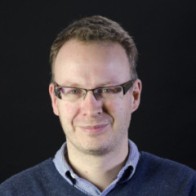
Keir is a specialist in the social history of medicine and has published books and articles on: public health, diseased meat (tuberculosis and BSE), medicine and charity, Victorian hospitals, the history of nursing, and the twentieth-century history of Bethlem (Bedlam). Having completed a book for Palgrave on the social history of medicine in Europe from 1500 to the present, he is currently working on projects related to: public health in rural Wales, river pollution, and on Gothic fiction and Victorian medicine. He is a a co-director of the Collaborative Interdisciplinary Study for Science, Medicine and the Imagination Research Group, and editor of Studies for the Society for the Social History of Medicine monograph series published by Routledge.
https://www.cardiff.ac.uk/people/view/73081-waddington-keir
Kate Griffiths
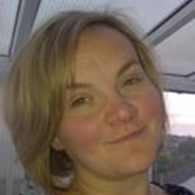 Kate’s research focuses on the translation of canonical texts across time, media and language. It explores the adaptation of French works into different national contexts/forms/tongues and the reworking of other foreign sources for the French cultural market. While Kate is, by training, a nineteenth-century literary specialist, her research (and as a result my teaching) now spans eras (the nineteenth, twentieth and twenty-first centuries) media (film, television, literature, painting and radio) and, to an extent, nations. Most recently she was academic consultant for the BBC Radio 4 year-long adaptation of the novels of Emile Zola.
Kate’s research focuses on the translation of canonical texts across time, media and language. It explores the adaptation of French works into different national contexts/forms/tongues and the reworking of other foreign sources for the French cultural market. While Kate is, by training, a nineteenth-century literary specialist, her research (and as a result my teaching) now spans eras (the nineteenth, twentieth and twenty-first centuries) media (film, television, literature, painting and radio) and, to an extent, nations. Most recently she was academic consultant for the BBC Radio 4 year-long adaptation of the novels of Emile Zola.
http://www.cardiff.ac.uk/people/view/133576-griffiths-kate
Jess Hoare
 Jess is Programme Manager for Y Lab, Nesta’s social innovation lab for Wales. One of her core responsibilities is running the Digital Innovation Fund for Wales. Before joining Nesta, Jess worked with Bath and Bristol by Design – AHRC and Design Council research project exploring the role design plays in creating economic benefit and social value in the region. Jess has collaborated with leading public arts institutions across the UK, including Tate, National Museums Wales and Watershed. As part of the team at the Pervasive Media Studio, she worked closely with the Playable City team to deliver the international Playable City Award – a prize given to promote civic engagement through playful technology interventions.
Jess is Programme Manager for Y Lab, Nesta’s social innovation lab for Wales. One of her core responsibilities is running the Digital Innovation Fund for Wales. Before joining Nesta, Jess worked with Bath and Bristol by Design – AHRC and Design Council research project exploring the role design plays in creating economic benefit and social value in the region. Jess has collaborated with leading public arts institutions across the UK, including Tate, National Museums Wales and Watershed. As part of the team at the Pervasive Media Studio, she worked closely with the Playable City team to deliver the international Playable City Award – a prize given to promote civic engagement through playful technology interventions.
http://www.creativecardiff.org.uk/users/jesshoare
Johann Gregory
 Johann’s research expertise lies in the Renaissance, specifically early modern English literature, drama and cultural history. His next research project explores the notion of fragility in literature and contemporary theory. I defended my doctoral thesis on Shakespeare’s Troilus and Cressida in 2013 at Cardiff University, where I taught literature from a range of historical periods for six years as a Postgraduate Tutor. In 2014-15 I was a Postdoctoral Lecturing Fellow at UEA. This year I have also been appointed as a Research Associate for Cardiff University’s Creative Economy project.
Johann’s research expertise lies in the Renaissance, specifically early modern English literature, drama and cultural history. His next research project explores the notion of fragility in literature and contemporary theory. I defended my doctoral thesis on Shakespeare’s Troilus and Cressida in 2013 at Cardiff University, where I taught literature from a range of historical periods for six years as a Postgraduate Tutor. In 2014-15 I was a Postdoctoral Lecturing Fellow at UEA. This year I have also been appointed as a Research Associate for Cardiff University’s Creative Economy project.
http://www.cardiff.ac.uk/people/view/152677-gregory-johann
Andreas Buerki
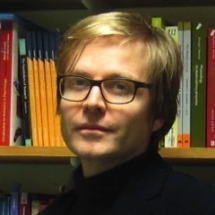 Andreas is a member of the Centre for Language and Communication Research. He is principally a quantitative corpus linguist and phraseologist, looking at how language as actually used by speakers (and writers) in real contexts works. His work is of a broadly usage-based, cognitive linguistic outlook, employing a constructionist approach to linguistic structure. He is particularly interested in the various aspects of formulaic language (common turns of phrase, phraseology) and in the social and cultural nature of language and how this shows in linguistic structure, language change and all sorts of more applied areas like second language acquisition.
Andreas is a member of the Centre for Language and Communication Research. He is principally a quantitative corpus linguist and phraseologist, looking at how language as actually used by speakers (and writers) in real contexts works. His work is of a broadly usage-based, cognitive linguistic outlook, employing a constructionist approach to linguistic structure. He is particularly interested in the various aspects of formulaic language (common turns of phrase, phraseology) and in the social and cultural nature of language and how this shows in linguistic structure, language change and all sorts of more applied areas like second language acquisition.
http://www.cardiff.ac.uk/people/view/148384-buerki-andreas
Dawn Knight
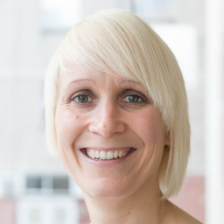 Dawn is a member of the Centre for Language and Communication Research. From March 2016 to August 2019 she will be the Principal Investigator on a £1.8 million ESRC/AHRC funded inter-disciplinary and multi-institutional project. The project, which is entitled ‘CorCenCC: Corpws Cenedlaethol Cymraeg Cyfoes (The National Corpus of Contemporary Welsh): A community driven approach to linguistic corpus construction’, will create a large scale, open source corpus of contemporary Welsh language. The creation of CorCenCC is community-driven with impact being generated through a user-informed design, harnessing opportunities afforded by mobile technologies, specifically crowdsourcing and community collaboration. Academic partners (CIs) on this project include colleagues from Cardiff, Swansea, Lancaster and Bangor Universities. More information is available on our website.
Dawn is a member of the Centre for Language and Communication Research. From March 2016 to August 2019 she will be the Principal Investigator on a £1.8 million ESRC/AHRC funded inter-disciplinary and multi-institutional project. The project, which is entitled ‘CorCenCC: Corpws Cenedlaethol Cymraeg Cyfoes (The National Corpus of Contemporary Welsh): A community driven approach to linguistic corpus construction’, will create a large scale, open source corpus of contemporary Welsh language. The creation of CorCenCC is community-driven with impact being generated through a user-informed design, harnessing opportunities afforded by mobile technologies, specifically crowdsourcing and community collaboration. Academic partners (CIs) on this project include colleagues from Cardiff, Swansea, Lancaster and Bangor Universities. More information is available on our website.
http://www.cardiff.ac.uk/people/view/142032-knight-dawn
Arne Hintz
 Arne Hintz is a Senior Lecturer at the Cardiff School of Journalism, Media and Cultural Studies and is Director of the MA Digital Media and Society.His research connects communication policy, media activism, citizen media, and technological change. He is Principal Investigator of the ESRC-funded project ‘Digital Citizenship and Surveillance Society: UK State-Media-Citizen Relations After the Snowden Leaks‘ and he co-chairs the JOMEC Research Group Digital Media and Society. His publications include the book ‘Civil Society Media and Global Governance’ (Lit, 2009) and the co-edited volume ‘Beyond WikiLeaks: Implications for the Future of Communications, Journalism & Society’ (Palgrave, 2013), as well as chapters in volumes such as ‘The Handbook on Global Media and Communication Policy’ (Wiley-Blackwell, 2011) and the Encyclopedia of Social Movement Media (Sage, 2010).
Arne Hintz is a Senior Lecturer at the Cardiff School of Journalism, Media and Cultural Studies and is Director of the MA Digital Media and Society.His research connects communication policy, media activism, citizen media, and technological change. He is Principal Investigator of the ESRC-funded project ‘Digital Citizenship and Surveillance Society: UK State-Media-Citizen Relations After the Snowden Leaks‘ and he co-chairs the JOMEC Research Group Digital Media and Society. His publications include the book ‘Civil Society Media and Global Governance’ (Lit, 2009) and the co-edited volume ‘Beyond WikiLeaks: Implications for the Future of Communications, Journalism & Society’ (Palgrave, 2013), as well as chapters in volumes such as ‘The Handbook on Global Media and Communication Policy’ (Wiley-Blackwell, 2011) and the Encyclopedia of Social Movement Media (Sage, 2010).
http://www.cardiff.ac.uk/people/view/182938-hintz-arne
Steve Blandford
 Professor Steve Blandford is Emeritus Professor of Theatre, Film and Television in the Faculty of Creative Industries at the University of Glamorgan. He was the co-founder and director (until 2014) of the Centre for the Study of Media and Culture in Small Nations is a founding trustee of of National Theatre Wales. and became a Board member of Chapter Arts Centre in 2013. Steve’s teaching and research interests include: British film, theatre and television; new writing for stage; screen performance; and media and performance in small nations. His latest publication is a monograph on the acclaimed television scriptwriter Jimmy McGovern (Manchester University Press, 2013).Prior to moving into academia, Steve worked as a writer, actor and director for theatre and television, producing work for the Edinburgh Fringe Festival, Chapter Arts Centre, Sherman Theatre and the BBC. He was shortlisted for The Guardian International Theatre Award in 1993.
Professor Steve Blandford is Emeritus Professor of Theatre, Film and Television in the Faculty of Creative Industries at the University of Glamorgan. He was the co-founder and director (until 2014) of the Centre for the Study of Media and Culture in Small Nations is a founding trustee of of National Theatre Wales. and became a Board member of Chapter Arts Centre in 2013. Steve’s teaching and research interests include: British film, theatre and television; new writing for stage; screen performance; and media and performance in small nations. His latest publication is a monograph on the acclaimed television scriptwriter Jimmy McGovern (Manchester University Press, 2013).Prior to moving into academia, Steve worked as a writer, actor and director for theatre and television, producing work for the Edinburgh Fringe Festival, Chapter Arts Centre, Sherman Theatre and the BBC. He was shortlisted for The Guardian International Theatre Award in 1993.
http://staff.southwales.ac.uk/users/953-sblandfo
John Anderson
 Paul’s research interests are based in computer vision, with current particular interests in 2D and 3D facial models, shape analysis and mesh processing. Paul is also (or has been) interested in a range of topics in the field such as cellular automata, approximating and representing curves, methods for performance evaluation and low level image processing. He i also active in processing biological, geophysical, remote sensing, and art/architectural data.
Paul’s research interests are based in computer vision, with current particular interests in 2D and 3D facial models, shape analysis and mesh processing. Paul is also (or has been) interested in a range of topics in the field such as cellular automata, approximating and representing curves, methods for performance evaluation and low level image processing. He i also active in processing biological, geophysical, remote sensing, and art/architectural data.
http://www.cs.cf.ac.uk/contactsandpeople/staffpage.php?emailname=paul.rosin
Omer Rana
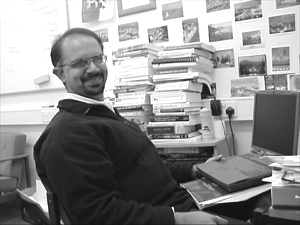 Omer’s research interests span three areas of Computing; (1) Problem Solving Environments (PSEs) for computational science and commercial computing, (2) Data analysis and management for large scale computing, and (3) scalability in high performance agent systems. Underpinning these three areas are the core concepts of ‘scalability’ and ‘performance management’.
Omer’s research interests span three areas of Computing; (1) Problem Solving Environments (PSEs) for computational science and commercial computing, (2) Data analysis and management for large scale computing, and (3) scalability in high performance agent systems. Underpinning these three areas are the core concepts of ‘scalability’ and ‘performance management’.
http://www.cs.cf.ac.uk/contactsandpeople/staffpage.php?emailname=o.f.rana
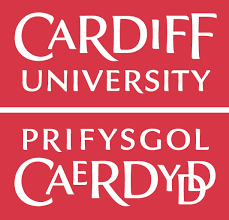
 John’s academic interest is oriented around the ‘extraordinary sets of relations between people and places’ (Holloway & Hubbard, 2000:6). These ‘extraordinary relations’ circulate around a number of spaces of interest (Environmental Action and Identity; Geography, Place & Culture; Rural Political Action; Water Worlds and Surfing Places; Emerging Ontologies; Literary Geographies; Innovative methodologies and communication) and have led to a range of international quality research publications and funding projects. They also inform John’s undergraduate and postgraduate teaching, both of which have won national teaching awards (Royal Town Planning Institute Awards for Teaching Excellence, 2009, 2011). His key publications include: Understanding Cultural Geography: Places and Traces (2012), Water Worlds: Human Geographies of the Ocean (with Peters, K, 2013), and Page and Place: Ongoing Compositions of Plot (with Morse, S, 2013).
John’s academic interest is oriented around the ‘extraordinary sets of relations between people and places’ (Holloway & Hubbard, 2000:6). These ‘extraordinary relations’ circulate around a number of spaces of interest (Environmental Action and Identity; Geography, Place & Culture; Rural Political Action; Water Worlds and Surfing Places; Emerging Ontologies; Literary Geographies; Innovative methodologies and communication) and have led to a range of international quality research publications and funding projects. They also inform John’s undergraduate and postgraduate teaching, both of which have won national teaching awards (Royal Town Planning Institute Awards for Teaching Excellence, 2009, 2011). His key publications include: Understanding Cultural Geography: Places and Traces (2012), Water Worlds: Human Geographies of the Ocean (with Peters, K, 2013), and Page and Place: Ongoing Compositions of Plot (with Morse, S, 2013).